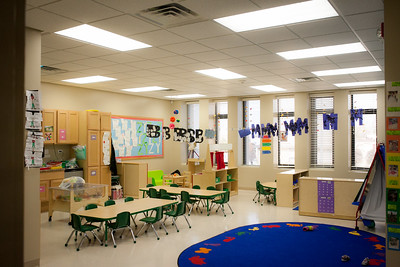Something bad is about to happen to childcare in the United States. At the end of this month, a $24B federal subsidy will vanish. With it, care for more than 3M children will also vanish. 56,650 of those children who will no longer have care providers live in Michigan. And Michigan will likely lose more than 1,250 licensed daycare facilities that cannot operate without the COVID-19 era federal support they’ve been receiving.
You might say that if a business can’t make it without subsidies, then it probably shouldn’t be operating. In most cases, you’d find wide agreement. But that probably doesn’t apply to daycare providers. Without the support of childcare providers, millions of women will not be able to hold a full-time job. Or they may have to rely on unlicensed care providers, family, friends, and neighbors. At the end of the day, that’s not safe.
Raising the cost of care isn’t really an option either. Daycare costs are out-of-pocket for the parents. Even for families that are solidly middle class, full-time care is out of the question. In Michigan, the average cost of full-time childcare is around $1,000 per month. That puts these expenses on par with college tuition, a monthly mortgage payment on a fairly small house, monthly rent on a studio apartment in Ypsilanti, or the monthly payment on a new car.
According to the US Department of Health and Human Services, childcare costs should not consume more than about 7% of the total monthly household income. To truly afford a $1,000 monthly daycare bill using this standard, the monthly household income would need to be about $14,300 per month. Annually, that’s about $171,500, which describes only about 5% of Michigan households. The average working parent – even a well-paid one – simply can’t afford childcare.
Affordable childcare is one way to eliminate poverty
The unavailability of affordable daycare doesn’t merely affect working families. It prevents families from working. It also prevents parents from attending school, completing degrees, and increasing their household incomes to the point of being able to support their children. It traps people in poverty in what should be their prime earning years.
In fact, childcare responsibilities are the most frequently cited reason among student parents for not completing a degree program or other credential. Not surprisingly, the availability of childcare increases the likelihood that student parents will graduate and escape poverty.
The availability of childcare (especially on campus) is essential for parents to even consider attending classes. And it underscores how damaging the loss of The Children’s Center at WCC has been to the community.
We need community college administrators who are committed to helping members of our community improve their standard of living. Instead, we have administrators who eliminated a community resource because it was convenient and expedient for them.
Photo Credit: Kids Work Chicago Daycare , via Flickr
























